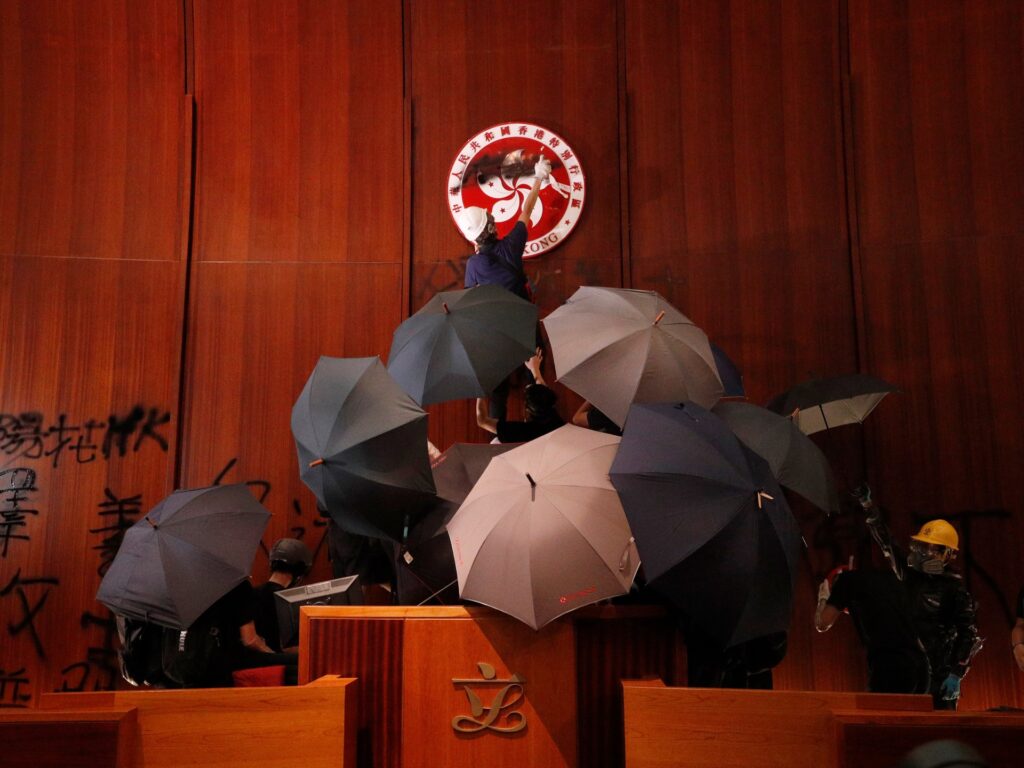The attack on the building marked an escalation in mass protests that began in 2019 over China's extradition bill.
A Hong Kong court has found four people guilty of rioting over the attack on the Hong Kong Legislative Council building that sparked a major escalation of pro-democracy protests more than four years ago.
On July 1, 2019, hundreds of protesters stormed a building after a large protest march against a proposed extradition bill that would allow authorities to send individuals to mainland China for trial.
After forcing their way inside, they tore portraits of officials from walls and spray-painted slogans calling for the release of arrested protesters. An old colonial-era flag was hung over the speaker's chair, and a plaque with Hong Kong symbols was painted black with spray paint.
On Thursday, District Court Judge Lee Chi-ho found Ho Chun-ying, actors Gregory Wong, Ng Chi-young and Lam Kam-kwang guilty of rioting.
Student journalist Wong Ka-ho and Passion Times reporter Ma Kai-chung, who were on trial along with the four, were acquitted of rioting charges but found guilty of illegal entry.
During the trial, Gregory Wong told the court that he entered the building only to deliver two chargers to a reporter who was covering the invasion by protesters.
Video evidence played by prosecutors showed Wong leaving the chamber shortly after delivering the charger to a reporter wearing a yellow vest.
Another defendant, Lam Kamkwan, told the court that he was detained in China a month after the Legco attack and forced to write a letter of repentance.
The police officer denied his claims during cross-examination by the defense.
Seven others, including former Hong Kong University Students' Union president Althea Suen and democracy activists Ventus Lau and Owen Chow, have pleaded guilty to rioting in May last year and are expected to issue mitigation statements later on Thursday. is.
They could be sentenced to up to seven years in prison.
Although the government eventually repealed the extradition bill, the protests, which drew more than 1 million people to the streets, were already gaining momentum and demands expanded to include direct elections for city leaders and accountability for the police. was.
The protests represent the biggest challenge to Hong Kong's government since the city returned to Chinese rule in 1997, and prompted Beijing to implement a sweeping national security law in 2020 that would put Hong Kong's main Many opposition politicians and activists have been arrested, silenced, or exiled. .
More than 10,200 people were arrested in connection with the protests for a variety of crimes, including rioting and participating in unauthorized gatherings.

